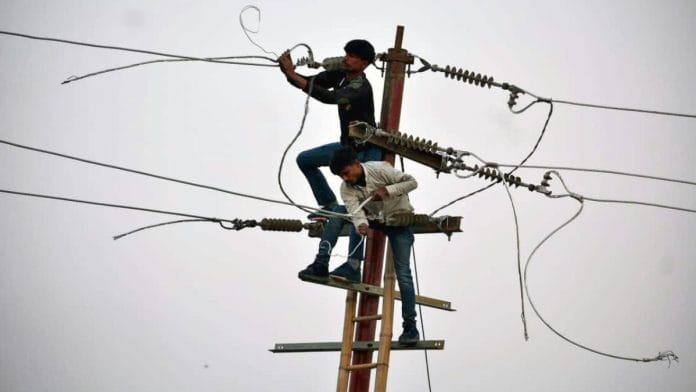The independence of regulators has long been a concern in India, with regulatory bodies often facing political and bureaucratic pressures that undermine their autonomy.
This issue is particularly evident in the electricity sector, where state electricity regulatory commissions (SERCs) frequently encounter government interference in tariff-setting, power purchase agreements (PPAs), and subsidy allocations. Two recent judgments—one by the Supreme Court in September 2024 and one by the Karnataka High Court in December 2024—have sought to correct this.
While the two decisions cover disparate subjects—one is concerned with the approval of PPAs, the other with rules on open access—both raise a familiar concern, that of the state impinging on the functional domain of the regulator.
Court rulings help uphold regulatory autonomy, but real change will come only when the Electricity Act is carefully structured to ensure genuine independence for regulators.
Decisions of the Court
In May 2023, the Kerala State Electricity Regulatory Commission (KSERC) did not approve some Power Purchase Agreements (PPAs), as it had found deficiencies in the tendering process. The power to regulate tariffs is one of the many functions assigned to state regulators, and the court argued that KSERC was well within its right to not approve the PPAs.
The state government influenced the Commission’s functioning by issuing a policy directive under Section 108 of the Electricity Act. In September last year, a three-judge bench of the Supreme Court, comprising the chief justice, held that electricity regulators are not bound to follow directives issued by the government when they interfere with their own statutory duties.
In the Karnataka case, it was the Union Government that usurped the regulator’s authority. The Green Energy Open Access Rules 2022, enacted by the Union Government, were made under power derived from residual provisions in the Electricity Act. The Karnataka High Court struck down the rules on the grounds that the government lacked the authority to enact them.
The high court reasoned that under the scheme of the Act, it was the state electricity regulators who were tasked with the specific legislative power to enact regulations on open access. It observed that the law requires that an independent and impartial body deal with the charges that can be levied in the matter of open access.
Also read: Over-regulation is holding back MSME growth, states need to lead in easing these: Economic Survey
Independent regulation of the electricity sector
Independent regulators were established in the hope that decision-making would be depoliticised. To this end, the Union government enacted the Electricity Regulatory Commissions Act in 1998. The Electricity Act of 2003 continued with the same approach. As a consequence, each state now has a regulator that is independent of the state government.
However, there is a gap between formal recognition of independence and regulatory practice. In the electricity sector in India, even the formal balance is tilted in favour of the state. The federal structure of electricity governance also implies that states are differently situated in their commitment to the independent regulator model.
The ambiguities of the Electricity Act further make this difficult. For example, as discussed earlier, Section 108 allows the State Government to issue policy directives to the ERC, but these directives are not necessarily binding and must be related to public interest issues. The Standing Committee (2002), while reviewing the Electricity Bill had acknowledged that the power to issue policy directives lacked a system of checks and balances.
The Committee recommended amending the clause to reduce the discretion of the government in issuing directives to the regulator. The amendments suggested by the Committee were not included in the law and as a consequence, state governments have not hesitated to use the provision to compromise regulatory autonomy.
The Shunglu Committee report (2011) documented that some state governments issued directions to the regulator on specific aspects of tariff setting, and have gone so far as to prevent an ERC from issuing a tariff order.
Similarly, the Union Government resorted to using residual powers to make rules on open access, a subject matter entrusted specifically to state regulators. Residual powers under an Act refer to the authority granted to the government to make rules on matters not explicitly detailed in the legislation. However, their use should align with the Act’s objectives and not override legislative intent. Excessive use of this residual power can undermine the legislative intent and disrupt the balance of power between different levels of government. The court acknowledged that the government, in usurping the power to make rules on open access, was substantively amending the design of the Electricity Act itself.
Also read: Budget 2025 wakes up to Regulation Raj. 3 key points to watch out for
We need to amend the Act
The court decisions need to be appreciated in the larger context of electricity governance in the country where ERCs have failed to consolidate their role on par with the mandate contemplated under the Act.
While they have become central to decision-making, state governments continue to enjoy outsized influence in matters of policy and are notorious for repeatedly interfering in regulatory functioning. The court decisions interpreting the letter of the Electricity Act, have for once struck the balance right.
However, real change will happen only when the Electricity Act is amended to eliminate vague provisions and ensure clear, enforceable regulatory principles. A well-structured law will strengthen regulatory independence and accountability, fostering a more stable and efficient electricity sector.
Renuka Sane is managing director at TrustBridge, which works on improving the rule of law for better economic outcomes for India. She tweets @resanering. Chitrakshi Jain is a Senior Fellow at TrustBridge. Views are personal.
(Edited by Theres Sudeep)







The authors have no clue about things.
What we Indians need and deserve is free electricity. Without any caps or limits.
Limitless free electricity to every household is the solution to all our woes.
It’s really sad that Kejriwal was voted out in Delhi. But his policy of free electricity should be implemented across the nation.